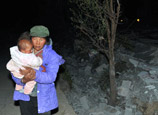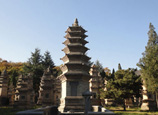
Today, Chinese people observe an annual ritual in memory of one of their great sons, Lei Feng, a People's Liberation Army soldier known for his selfless help to others.
It is the time when everyone is supposed to learn from Lei Feng and do some good deeds. It is the time when every Chinese becomes the heir to Lei Feng's Good Samaritan legacy, or indeed, a Lei Feng reincarnate.
But unsolicited services rendered by modern-day "Lei Fengs" aren't always appreciated.
A civil servant friend told me that some senior citizens living in nursing homes have complained openly about an incessant flow of visitors on March 5.
Regardless of whether the elderly people need their services, visitors give them baths and wash their feet repeatedly. Some receive a maximum eight baths on a single day, and are badly exhausted by do-gooders' activities.
What is a day to provide care for the needy has been an occasion for some to showcase their superficial understanding of kindness and Lei Feng's famous motto, "serve the people." And kindness is short-lived. The next day quiet returns to the nursing homes. Visitors stop coming in droves, till March 5 next year.
A commentator wrote on Monday for the Guangming Daily that the practice of "one-day Lei Feng" is more a desecration of the model soldier's spirit than promulgation of it.
While the legend of Lei Feng officially lives on, an unflattering question can be asked: how much of his spirit is really left in us?
Are those who walked past a dying toddler in October 2011, pretending not to see her, and those who seldom slow their cars to yield to pedestrians worthy of Lei Feng's legacy?
College closes student haunt to make way for commerce
LAST weekend I took a stroll on a pedestrian street near Fudan University, my alma mater.
Back in my college years, the street was like a miniature of the famous shopping precinct of Nanjing Road E. and was very popular with students for the affordable snacks and discount books available in shops lining the street.
I had expected a walk down the memory lane, but no trace was left of the cozy shopping street the day I visited. What greeted me was a sight of destruction, of rubble scattered all over the place. Most storefronts were sealed by brick and concrete walls.
It is not clear what will become of the street after it's emptied of all the cheap eateries, bookstores and trinket shops. Maybe something sleek and shiny will stand in their place.
Many Chinese universities now pride themselves on the number of buildings, gymnasiums and other world-class facilities on or near their campuses, even though they don't always blend into the surroundings.
Humble but lively "landmarks" like Fudan's moribund pedestrian street are always the first to be devoured by universities' expansion plans. But they make up a colorful part of campus life, and rekindle alumni's nostalgia.
One landmark less.
In a few years, when I revisit Fudan, how many more will still be recognizable?
















 The millionaire philanthropist promotes 'Clean Plate Campaign' at CPPCC session.
The millionaire philanthropist promotes 'Clean Plate Campaign' at CPPCC session.


![]()
